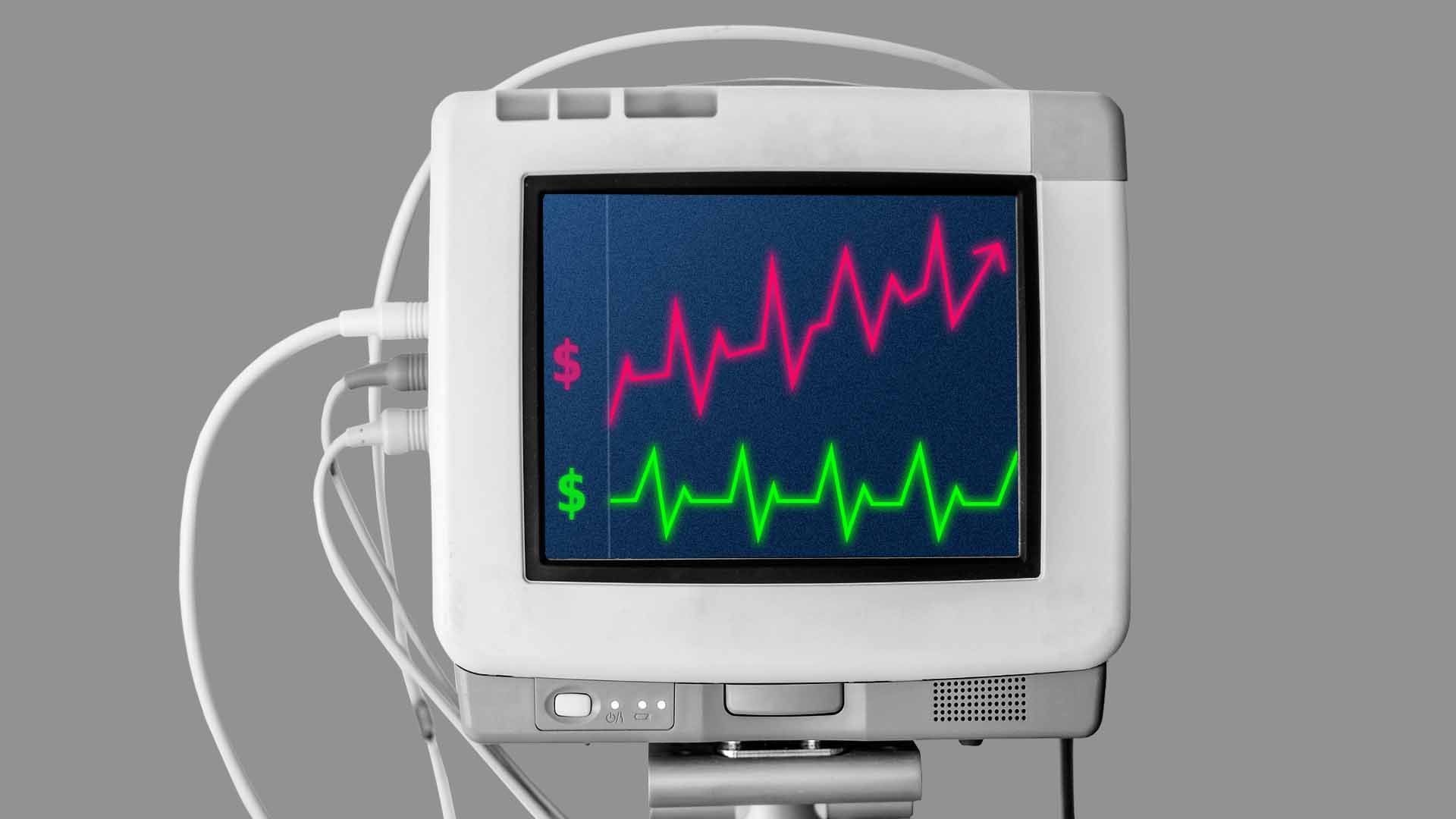|
||
| Axios Vitals | ||
| By Tina Reed and Maya Goldman · Jul 14, 2025 | ||
|
Welcome back. Today's newsletter is 1,061 words or a 4-minute read. |
||
| 1 big thing: Medicaid work rules squeeze states | ||
| By Tina Reed | ||

|
||
|
Illustration: Brendan Lynch/Axios |
||
|
The new Medicaid work rules in President Trump's tax-and-spending law put states on a tight timetable for setting up systems to notify millions of recipients about the requirements — and to track if they're complying. Why it matters: Previous efforts to set work rules in Georgia and Arkansas showed it could be a messy and expensive process that generally relies on outside vendors to set up the necessary infrastructure.
State of play: The new law starting in 2027 will require states to condition Medicaid eligibility for able-bodied adults on working, volunteering or doing other qualifying activities for at least 80 hours per month.
The consequences of failing could be significant. Many of the nearly 12 million people expected to lose coverage under the law will do so because of red tape around work requirements and the inability to show they're complying.
Among the challenges is how to track someone's volunteer hours, or hours worked if an individual has a varying schedule, like a gig worker. There also are factors like determining the status of a behavioral health problem that could qualify for an exemption.
|
||
|
|
||
| 2. Medical debt to stay on credit reports | ||
| By Adriel Bettelheim | ||

|
||
|
Illustration: Sarah Grillo/Axios |
||
|
A federal judge in Texas vacated a Biden-era rule that would have removed medical debt from consumers' credit reports, agreeing with Trump administration and credit industry arguments that the policy change was regulatory overreach. Why it matters: The rule would have wiped an estimated $49 billion from some 15 million Americans' credit reports and kept lenders from using medical information in their decisions.
Driving the news: U.S. District Court Judge Sean Jordan, a Trump appointee, ruled on Friday that the rule exceeded the Consumer Financial Protection Bureau's authority because it essentially rewrote the Fair Credit Reporting Act.
Zoom in: Leading credit reporting agencies like Experian, Equifax, and TransUnion said the rule could have given lenders an inaccurate and incomplete picture when making loans.
|
||
|
|
||
| 3. New summer COVID wave may be forming | ||
| By Tina Reed | ||

|
||
|
Illustration: Megan Robinson/Axios |
||
|
Cases of COVID-19 are on the rise or likely rising across half of the U.S., including much of the South as well as on the West Coast, according to a weekly update from the CDC. Why it matters: The data suggests another summer of illness could be in the offing as more people lose protection from vaccination, natural immunity wanes and the virus keeps mutating.
What they're saying: COVID-19 cases are growing in 25 states, including Florida, Texas, California and Ohio, per the CDC. They're likely growing in more than a dozen others.
What to watch: The most dominant COVID variant circulating in the U.S. is NB.1.8.1, nicknamed "nimbus", per the CDC.
|
||
|
|
||
|
A MESSAGE FROM AXIOS |
||
| Go deeper with Axios Communicators Pro | ||

|
||
|
Axios Communicators Pro Membership gives comms professionals the expert insights, actionable data and industry connections needed to navigate the evolving communications landscape. Join now to unlock exclusive benefits to help you tackle the industry's demands. |
||
| 4. GOP megabill threatens Medicaid startups | ||

|
||
|
Illustration: Sarah Grillo/Axios |
||
|
Trump's new law and its nearly $1 trillion in Medicaid cuts are set to present new challenges — and opportunities — for startups serving program beneficiaries, Erin Brodwin wrote first on Pro. The big picture: The venture-backed businesses that heavily courted Medicaid markets in the early 2020s face tightened budgets, reduced payments and fewer customers. Context: The GOP tax bill decreases payments to hospitals or nursing facilities across at least 29 states, per a KFF analysis.
Inside the room: Some Medicaid-focused startups have already seen direct fallout from the law in the form of paused payer contracts. Case in point: One startup executive says it received notice last week from a not-for-profit insurer — and one of its largest Medicaid plan provider partners — that it was pausing all new contracts, meaning the company "will need to pivot from [its] main go-to market." What they're saying: "The concern [about the bill] is genuine and warranted," says Medicaid startup adviser Shereese Maynard. "If I were leading one of these startups, I'd immediately re-run my revenue models, diversify my payer mix, and build a state-by-state advocacy plan." What we're watching: Some of the most well-funded Medicaid startups, per PitchBook, include Cityblock Health, which provides primary care and other services to marginalized populations, and Unite Us, a tech company with services like eligibility verification. If you need smart, quick intel on health tech dealmaking for your job, get Axios Pro. |
||
|
|
||
| 5. Catch up quick | ||

|
||
|
Illustration: Sarah Grillo/Axios |
||

